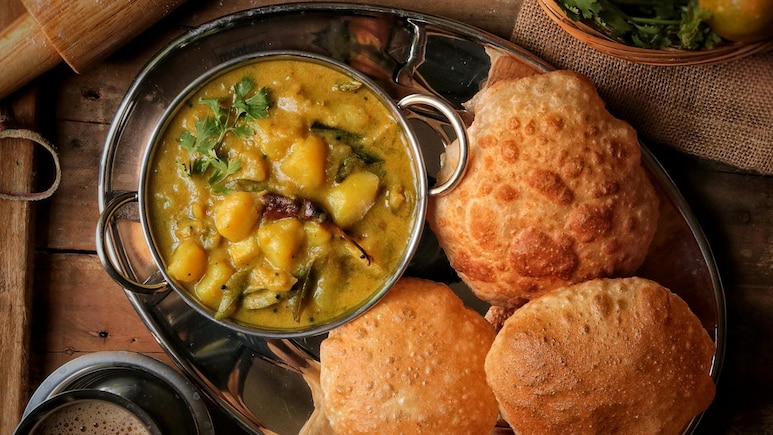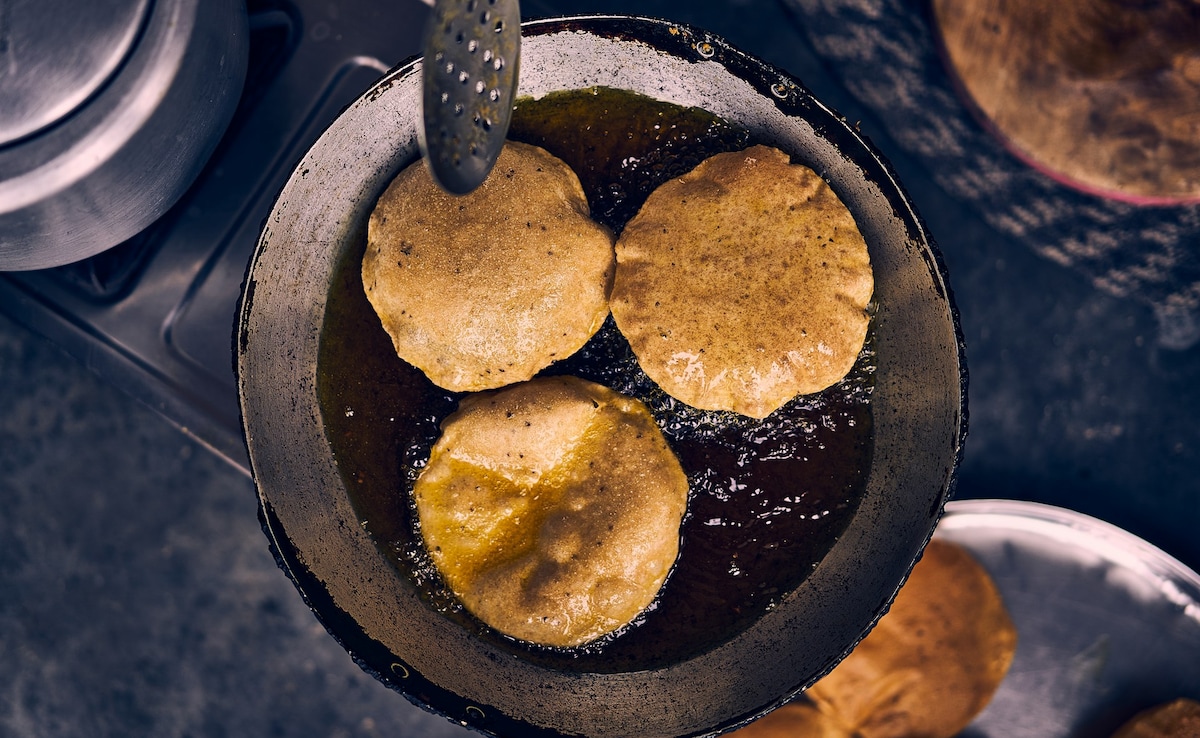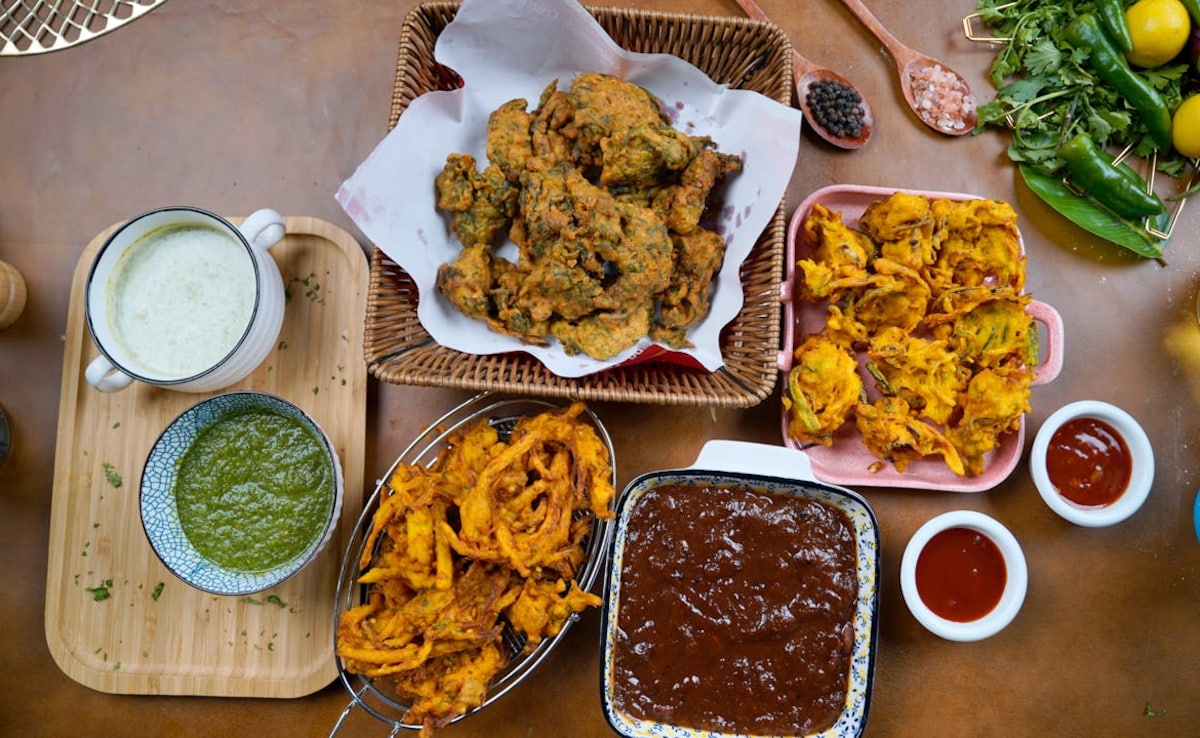
Navratri is a time of devotion, dance, and delicious food. But even those who fasting for nine days and then indulge in celebrations on Dussehra or Vijaya Dashami tend to eat fried foods and sweets more than anything else. Think sabudana vada and kuttu puri for example. And then follows the build-up to Diwali, Bhai Dooj and more. From fried pakoras and jalebis to ghee-rich sweets and butter-heavy gravies, festival plates are often loaded with indulgent items. But doctors warn that these oily foods, if consumed in excess, could spell trouble for the digestive system.
"Fatty and greasy foods not only trigger acid reflux but also put immense stress on the gallbladder. During festive seasons, we often see a surge in patients reporting with acidity, indigestion, and even gallbladder emergencies," says Dr Shubham Vatsya, Senior Consultant, Gastroenterology, Fortis Hospital Vasant Kunj.
Here's why fatty foods pose such risks, and when you should seek medical help.
Why Fatty And Oily Foods Are Risky
While you might be consuming them because they are sattvic, the fact is that most people tend to pick the right ingredients and wrong cooking methods during Navratri. The result is fatty and oily food, which pose the following risks.
Increased Acid Production And Reflux
When you eat fried or greasy food, your stomach takes longer to empty. This means food and acid linger inside for longer, raising the risk of reflux. "Fatty foods can relax the lower oesophageal sphincter (LES), the valve between the stomach and oesophagus. When this happens, acid can flow back into the food pipe, causing heartburn and acidity," explains Dr Vatsya. This is why many people complain of burning chest pain or regurgitation after heavy festive meals.
Gallbladder Stress And Gallstone Issues
The gallbladder stores bile, which helps break down fats. A sudden, large intake of greasy food makes the gallbladder contract forcefully. "If someone already has gallstones or impaired bile flow, these strong contractions can trigger severe pain, inflammation, or even acute cholecystitis," says Dr Vatsya. In some cases, fatty feasts can worsen gallstone-related complications, leading to bile duct blockage or infection.
Overlap Of Symptoms And Complications
The tricky part is that symptoms of acidity and gallbladder attacks often overlap. "After a heavy oily meal, people may assume chest or stomach pain is due to simple acidity. But in some cases, it could indicate a gallbladder attack or even pancreatitis if the ducts are obstructed," cautions Dr Vatsya.

Photo Credit: Pexels
Typical Festive Triggers You Should Beware Of
Festive meals during Navratri and beyond often include:
- Deep-fried snacks like pakoras and jalebis
- Ghee-laden sweets in sugar syrup
- Creamy gravies with butter or oil
- Large portions eaten late at night or once a day
"These kinds of feasts overwhelm the digestive system, especially for those not accustomed to high-fat meals daily," says Dr Vatsya.
When Oily Foods Could Lead To Emergencies
For people with pre-existing gallstones or gallbladder disease, a single greasy meal can be dangerous. Risks include:
- Acute gallbladder attack (cholecystitis): Severe abdominal pain, inflammation, and fever.
- Bile duct obstruction: Jaundice, infection, and risk of sepsis if untreated.
- Pancreatitis (in rare cases): Inflammation of the pancreas when ducts are blocked, which can become life-threatening.
"Anyone experiencing persistent abdominal pain, fever, nausea, or yellowing of the eyes after fatty meals should seek urgent medical care," Dr Vatsya stresses.
Red Flags That Shouldn't Be Ignored
While mild acidity can be managed with dietary changes, severe or recurring symptoms demand attention. According to Dr Vatsya, these warning signs should not be overlooked:
- Constant heartburn or chest burn
- Regurgitation of food or acid
- Difficulty swallowing
- Severe abdominal pain after meals
- Pain radiating to the back or shoulder
- Nausea, vomiting, or fever
"These symptoms may indicate conditions far more serious than simple indigestion. Early intervention prevents complications," he adds.

Photo Credit: Pexels
Doctor's Advice For Safer Festive Eating
To enjoy festive foods without risking emergencies, Dr Vatsya suggests the following tips:
- Moderation is key: A small portion of fried or sweet food occasionally is less harmful than daily indulgence.
- Balance meals: Pair heavier foods with lighter options like fruits, vegetables, or salads.
- Stay hydrated: Water aids digestion and reduces acid buildup.
- Avoid late-night heavy meals: Eating too close to bedtime increases reflux risk.
- Know your history: People with known gallstones, reflux disease, or digestive issues should be extra cautious.
Festivals are meant for joy and togetherness, but ignoring your body's signals can turn celebrations into medical emergencies. "Overindulgence in oily foods can do more than just cause acidity. It can precipitate gallbladder attacks and other serious conditions. A little mindfulness with food choices goes a long way in keeping the festive spirit heart- and gut-friendly," says Dr Vatsya.
So, this festive season, relish your favourite treats, but with balance, awareness, and moderation. After all, a healthy gut ensures your celebrations stay bright, worry-free, and full of energy.
Disclaimer: This content including advice provides generic information only. It is in no way a substitute for a qualified medical opinion. Always consult a specialist or your own doctor for more information. NDTV does not claim responsibility for this information.
Track Latest News Live on NDTV.com and get news updates from India and around the world

